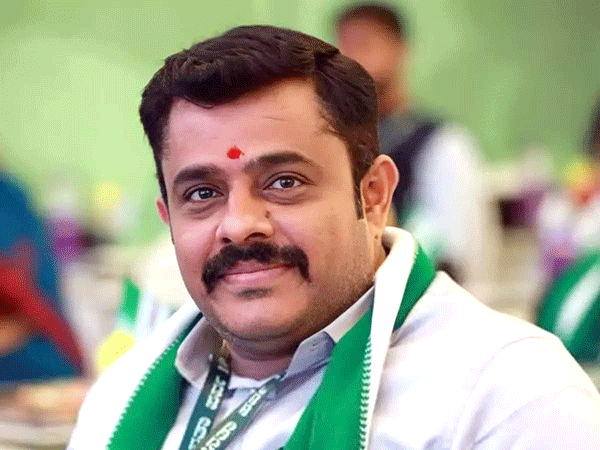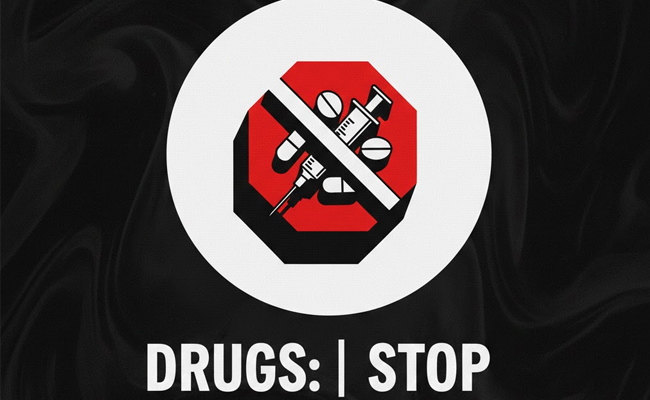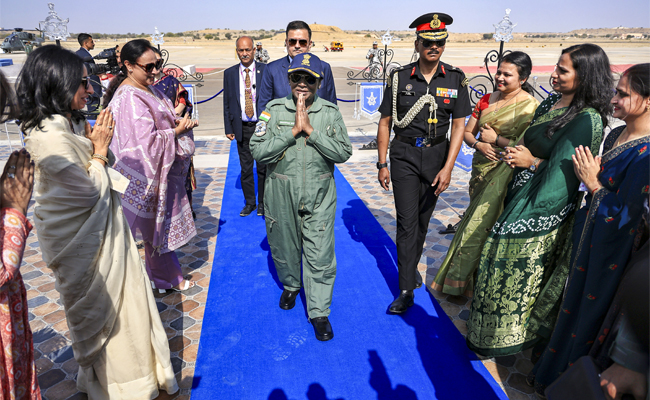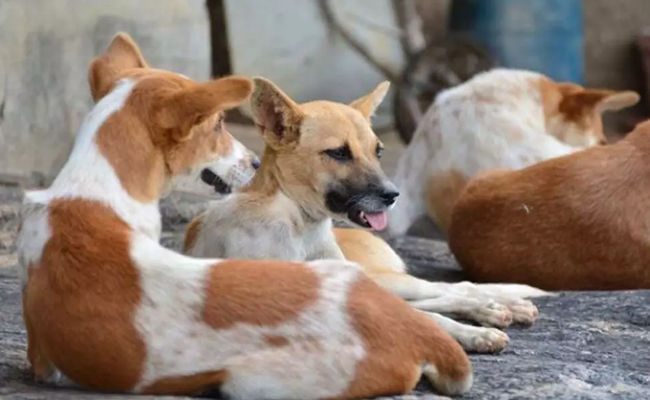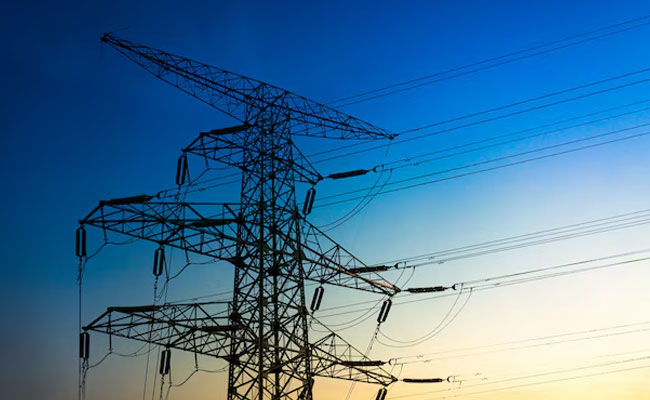New Delhi, Apr 17: The Supreme Court on Monday stayed the disqualification of Janata Dal (Secular) MLA D C Gowrishankar Swamy from the Tumkur Rural constituency in Karnataka and allowed him to contest the upcoming Assembly polls in the southern state.
The top court, however, said Swamy will not be entitled to cast his vote on the floor of the House or in any of the committees where he is nominated as a member.
A bench of Justices Surya Kant and J K Maheshwari stayed a Karnataka High Court direction passed in its order dated March 30, in which it held: "The election of the returned candidate, D C Gowrishankar Swamy, a member of the legislative assembly, Tumkur Rural constituency, declared as per Form-21C dated May 15, 2018, is hereby declared void."
The court admitted Swamy's appeal filed through advocate Balaji Srinivasan and argued by senior advocate K K Venugopal for hearing and said as an interim measure, "it is directed that: (i) the direction issued by the high court in para 154(a) of the impugned judgment dated March 30, 2023 shall remain stayed".
The bench said Swamy shall be entitled to contest the May 10 Karnataka Assembly polls, subject to further directions that may be passed by the court at an appropriate stage.
"The appellant shall be entitled to all privileges, allowances and benefits as a member of the current state Legislative Assembly. However, he shall not be entitled to cast his vote on the floor of the House or in any of the committees where he is nominated as a member," it said.
The bench further directed that the parties shall be at liberty to seek appropriate directions immediately after the election results are declared on May 13.
"This interim arrangement is only for the current 15th state Legislative Assembly and the 16th state Legislative Assembly, liberty is granted to the parties to seek appropriate directions," it said and posted the matter for further hearing on July 14.
On March 30, the high court had disqualified Swamy in a case relating to alleged electoral malpractices.
It had, however, kept the disqualification in suspension for a month, allowing the lawmaker to file an appeal in the Supreme Court.
A single-judge bench of the high court had delivered its verdict on a petition filed by Bharatiya Janata Party (BJP) candidate B Suresh Gowda, which alleged electoral malpractices by Swamy -- distributing fake insurance bonds among voters -- during the 2018 Karnataka Assembly polls.
Swamy defeated Gowda in the 2018 election.
The disqualification, under section 101 of the Representation of the People Act, came five years after the original complaint was filed by Gowda.
Apart from Swamy, the court also found the other accused -- Balanetraiah, Arehalli Manjunath, Krishnegowda, Renukamma and Sunanda -- guilty of corrupt poll practices. The suspension of the order was only in respect of Swamy and not the other accused, the high court had said.
After the Model Code of Conduct came into force on March 27, 2018, Swamy and his associates allegedly distributed fake insurance bonds to 32,000 adults and 16,000 minors, thereby violating section 123 of the Act, according to the election petition filed by Gowda.
The BJP leader approached the high court in July 2018 and the judgment on his plea came a day after the Election Commission (EC) announced the schedule for the 2023 Assembly polls.
Swamy had told the top court that he had filed the present appeal under section 116A of the Representation of the People Act, arising out of the impugned final order and judgment dated March 30, 2023 of the high court passed on an election petition.
He had said the high court had erroneously allowed the election petition in part filed by Gowda, an unsuccessful candidate in the 2018 Assembly polls.
"By way of the said order, the high court erroneously declared the election of the returned candidate, that is, the appellant, having being declared as elected as per Form-21C dated May 15, 2018 void and named the following persons in terms of section 99(1)(a)(ii) of the Representation of the People Act for having committed corrupt practices at the election, namely Balanethraiah G, Arehalli Manjunath, Krishnegowda, Renukammma and Sunanda," Swamy's plea said.
It added that in the 2018 polls, Swamy had garnered 82,740 votes, while Gowda had secured 77,100 votes and therefore, the former was declared as elected by a substantial margin of 5,640 votes, and the returning officer had issued Form 21-C under section 64 of the Representation of the People Act on May 15, 2018, declaring him as elected.
"The respondent no. 1 (Gowda), with mala-fide intentions, had challenged the validity of the election of the appellant (Swamy), contending that his election was vitiated by the commission of corrupt practices as defined under section 123(1) and 123(2) of the Representation of the People Act by filing election petition no. 1 of 2018," the plea said.
ALSO READ---EC orders transfer of 10 cops for smooth conduct of Karnataka polls
Let the Truth be known. If you read VB and like VB, please be a VB Supporter and Help us deliver the Truth to one and all.
Bengaluru (PTI): Bengaluru City Police on Friday said 16 people, including two women were arrested allegedly for drug peddling and contraband worth Rs 5.24 crore have been seized.
The arrests were made by the Narcotics Wing of the Central Crime Branch, they said.
A total of 3,000 MDMA ecstasy pills (1.93 kg), 230 grams of MDMA crystal, 48.75 kg ganja, and 306 grams of hydro ganja have been seized, police said, adding that its estimated market value is Rs 5.24 crore.
During the operations, a total of 16 persons, including eight from other states and two women, were taken into custody on different dates, Bengaluru Police Commissioner Seemant Kumar Singh said during a press conference here.
"During interrogation, the accused, including the two women , confessed that they were procuring banned narcotic substances such as MDMA ecstasy pills, MDMA crystal, ganja, and hydro ganja at lower prices from foreign nationals, persons from other states, and local unidentified suppliers, with the intention of earning easy money, and were selling them to the public, including college students," he said.
Efforts are ongoing to trace the foreign and out-of-state suppliers who were providing narcotic substances to the accused, police said, adding that further investigation is underway.
In a separate special drive, officers and staff of the CCB Narcotics Wing conducted operations in the limits of Bagalur, Whitefield, Parappana Agrahara, and Madanayakanahalli police stations against foreign nationals who were overstaying their visas and allegedly involved in drug peddling, police said.
"Nine foreign nationals were taken into custody. As per the orders of the FRRO (Foreigners Regional Registration Officer), the nine foreign nationals were sent to the Foreigners Detention Centre. Subsequently, two of them have been deported to their home country," he added.

